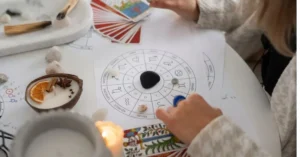Chess, often regarded as the ultimate battle of wits, has produced some of the greatest minds in history. Among these luminaries stands GM Socrates, a name synonymous with profound wisdom and strategic genius. He transcends the chessboard, blending philosophy and gameplay into an art form that teaches us more than just how to win a match.
As we delve deeper into his life and teachings, you’ll discover invaluable lessons that apply not only to chess but also to everyday decision-making. Whether you’re an aspiring grandmaster or simply someone who enjoys casual games on weekends, GM Socrates offers insights that can elevate your approach to challenges both on and off the board. Join us as we explore his journey from childhood prodigy to celebrated champion while uncovering the philosophical principles he embodies in every move he makes.
Background of GM Socrates
GM Socrates is a name that resonates deeply within the chess community. Born in a small town, he quickly demonstrated an aptitude for strategic thinking and problem-solving. These traits would later define his career on the chessboard.
From an early age, he was captivated by the game. He spent countless hours studying famous matches and practicing against anyone willing to play. His dedication set him apart from peers who enjoyed casual games without the same level of commitment.
Throughout his youth, GM Socrates faced numerous challenges. The road to becoming a grandmaster was filled with obstacles that tested not just his skills but also his character. Each setback taught him valuable lessons about resilience and perseverance.
As he transitioned into adulthood, Socrates began participating in local tournaments. His talent soon gained recognition, leading to invitations for national competitions where he consistently outperformed expectations.
By earning titles at various levels, GM Socrates established himself as a formidable player in international circles. His journey from local enthusiast to global contender is inspiring for many aspiring chess players today.
Early Life and Chess Career
Born in a small town, GM Socrates showed an early affinity for strategy and critical thinking. His childhood was marked by curiosity, often exploring puzzles that challenged his mind. Chess arrived in his life as a game of intrigue, captivating him with its complexity.
At the tender age of six, he learned the basics from his grandfather. This sparked a fierce passion that would shape his future. He spent countless hours analyzing games and practicing against anyone who would challenge him.
As he progressed through local tournaments, it became clear that Socrates had a unique talent for chess. His keen analytical skills set him apart from peers. By his teenage years, he began to gain recognition on the national circuit.
Socrates embraced rigorous training routines during these formative years. He studied classic matches and absorbed various playing styles. Each game became an opportunity for growth and understanding.
By the time he reached adulthood, GM Socrates had transformed into a formidable player on the international stage. His dedication paid off when he achieved grandmaster status—a milestone marking not just personal triumph but also promising beginnings for a bright career ahead.
Philosophical Approach to Chess
GM Socrates views chess as more than just a game; it’s a reflection of life itself. Every move on the board represents choices we make in real life, echoing the complexities and uncertainties we face daily. He often emphasizes that each decision carries weight, requiring players to think critically about their direction.
This philosophical approach allows him to analyze not only his own strategies but also those of his opponents. He believes understanding one’s mindset is crucial for success on the board. By studying different styles of play, he gains insights into human behavior, applying these lessons beyond chess.
Socrates encourages aspiring players to embrace failure as a stepping stone to growth. Mistakes are part of learning, shaping both character and skill over time. This resilience fosters a deeper connection with the game.
Moreover, GM Socrates promotes mindfulness during play. Concentration brings clarity and enhances performance while allowing one to appreciate the beauty within each position on the board.
His teachings extend into the realm of sportsmanship too; respect for opponents is fundamental in both victory and defeat. Through this lens, chess becomes an art form where intellect meets ethics in every match played.
Important Lessons Learned
GM Socrates offers invaluable lessons for both chess enthusiasts and life itself. One of the key takeaways is the importance of patience. In chess, waiting for the right moment to strike can be crucial. This principle applies beyond the board; it teaches us that timing often makes all the difference in achieving our goals.
Another significant lesson from GM Socrates is adaptability. The game constantly evolves, as do opponents’ strategies. Being flexible allows players to navigate unexpected challenges effectively. Life demands a similar ability—adjusting plans when circumstances change can lead to success.
Moreover, strategic thinking emerges as a theme throughout his teachings. Every move requires foresight and consideration of potential consequences. This kind of critical thinking encourages us to analyze situations thoroughly before acting.
Additionally, humility plays a vital role in growth according to GM Socrates. Recognizing one’s limitations fosters continual learning and improvement—essential traits for any player or individual striving for greatness.
He emphasizes the beauty of resilience in both chess and life’s battles. Losses are inevitable but viewing them as opportunities rather than setbacks paves the way for future triumphs.
Legacy of GM Socrates
GM Socrates has left an indelible mark on the chess world. His unique playing style and philosophical insights have inspired countless players, from amateurs to seasoned grandmasters. He wasn’t just a competitor; he was a thinker who encouraged others to see chess as more than a game.
Many of his teachings transcend the board. They resonate in various aspects of life, urging individuals to approach problems with patience and strategic foresight. His ability to blend philosophy with chess strategy allowed him to connect deeply with fans and students alike.
The tournaments he participated in showcased not only his skills but also his sportsmanship. GM Socrates believed that each match was an opportunity for growth, both personally and for the sport itself. This perspective fostered respect among competitors.
His writings continue to be studied by aspiring players seeking wisdom beyond tactics alone. Through books, lectures, and online platforms, his legacy continues to inspire new generations eager to learn from one of chess’s great minds.
Moreover, organizations focused on promoting chess often cite him as a pivotal figure in their initiatives. His commitment to teaching has helped keep interest alive in communities around the globe where young talent is nurtured under his influence.
Conclusion
The wisdom of GM Socrates transcends the chessboard. His teachings extend beyond strategy, encompassing life lessons that resonate with players and non-players alike. Through a deep understanding of the game, he has illustrated how patience, foresight, and adaptability are essential not only in chess but also in navigating life’s challenges.
Socrates’ philosophical approach encourages us to think critically about our decisions. Every move on the board is akin to a choice we make in daily life—each requiring careful consideration of consequences and potential outcomes. This mindset fosters resilience and clarity.
The legacy he leaves behind inspires new generations of chess enthusiasts. His insights continue to shape discussions around gameplay while encouraging self-reflection among those who engage with his work. The principles he embodied remind us that learning never stops; whether it’s mastering an opening or confronting personal dilemmas, there’s always room for growth.
As we explore strategies on the board or face obstacles off it, the lessons from GM Socrates serve as invaluable reminders: be thoughtful in your choices and embrace each challenge as an opportunity for improvement. The journey through chess—and indeed through life—is enriched by such wisdom.









